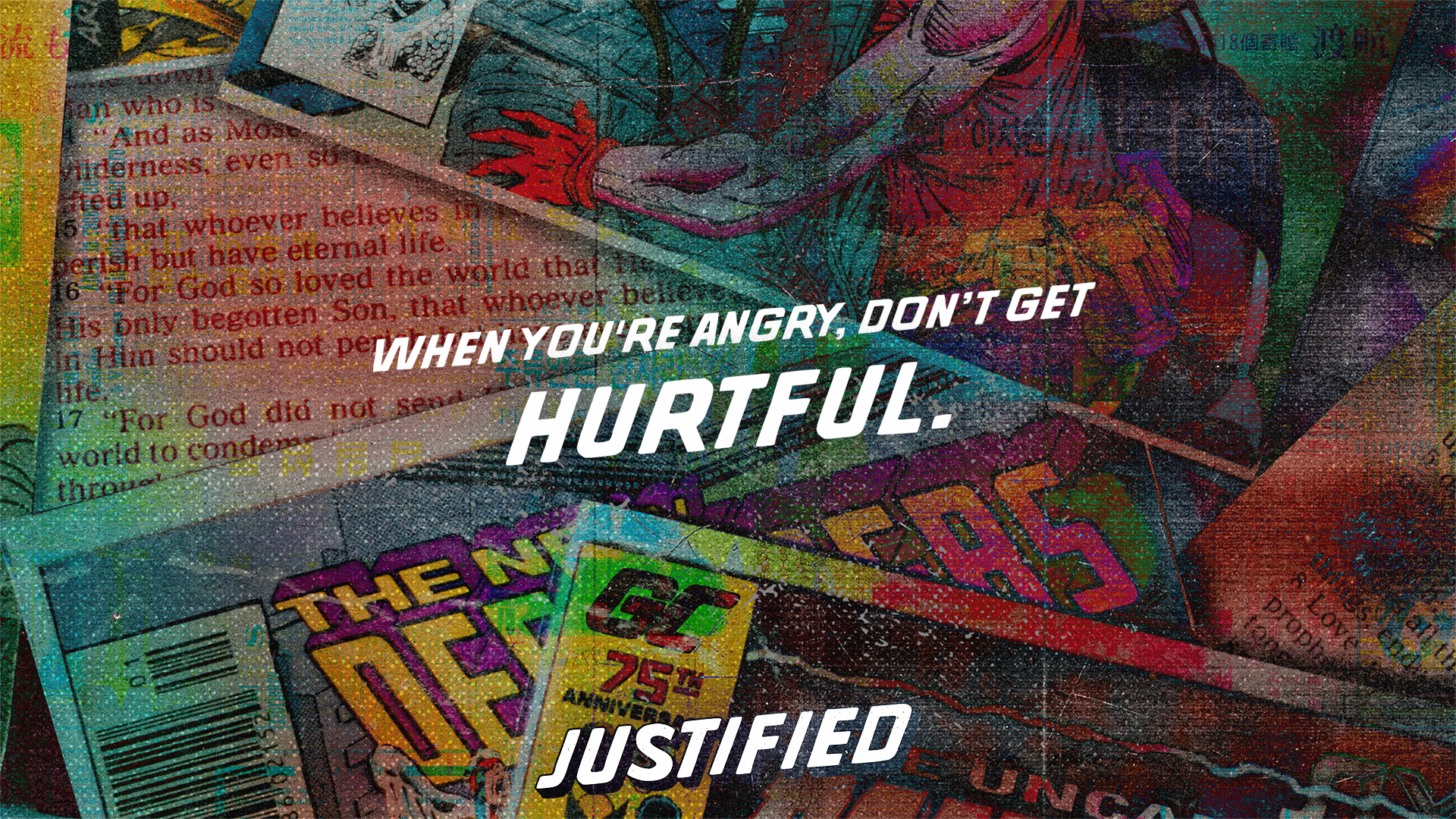Justifiedনমুনা


Every hero, no matter how great they are, gets tired. They're tired of people trying to hurt their loved ones or tired of protecting the same city on a never-ending loop. They might even begin to lose control and start using their powers to get revenge. Whenever this happens, they end up looking more like the villains they want to defeat than the heroes they're called to be.
This isn't just a problem for superheroes in comic books. We do this, too. Sometimes, we hurt others after being hurt ourselves. We feel like we want others to experience the same pain we've felt, and then we'll give into those feelings. But we've seen enough comic book movies to know acting out of our own hurt never leads to a happy ending.
In a letter to the Ephesians, Paul says something incredible — in your anger, do not sin. Paul recognizes and validates the thing we all feel — anger — but then he goes a step further by sharing how we should respond. He is speaking from experience as a guy whose anger once led him to horrific choices in persecuting the first Christians.
When you're angry, you're allowed to feel those things, but think about how you might respond. Will your actions hurt someone? Will they escalate what's happening? If so, consider choosing something different. Try to act in a way that respects the relationship and work to repair or restore what you have. When you're angry, don't get hurtful.
Scripture
About this Plan

For the next four weeks, we’ll explore four passages of Scripture from both the Old and New Testaments that might challenge our view on anger. We’ll learn practical skills like when we feel angry, pause to ask God why. We’ll see how, when we’re angry, Jesus shows us how to respond. And in our anger, we'll be challenged to show grace and not get hurtful.
More
Related Plans

Reflecting Christ's Love: How to Be a Christ-Like Friend and Partner

God's Heart for Justice: A 5-Day Devotional on Compassion and Action

Divine Identity: Understanding God Through His Names

Watch Your Mouth!

Everything You Need

Every Place

Ears to Hear (S3-E7)

Laying Hold of a Divine Perspective: A 3-Day Marriage Plan

Romans
